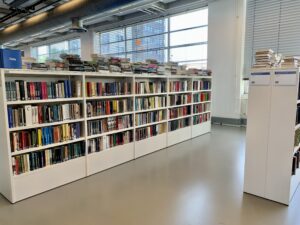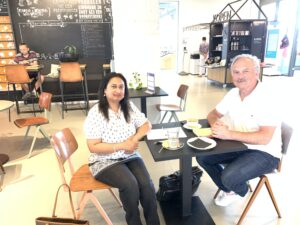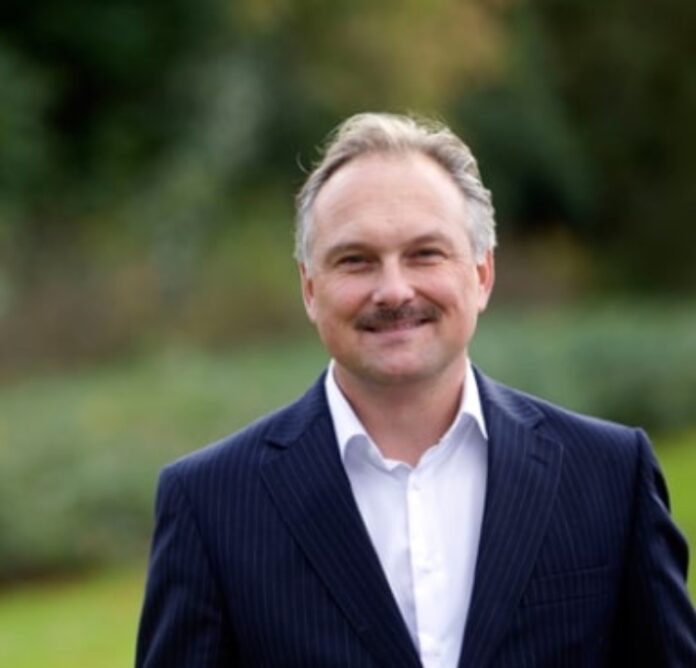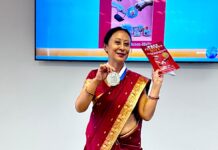A city like Eindhoven, which is home to various nationalities, has a different set of requirements to strengthen its international appeal. How is the Eindhoven Library contributing to this, what are they doing to stimulate creative initiatives, events and programs in the Eindhoven area?
With this and various other questions in mind, Eindhoven News decided to interview Albert Kivits, Director of Eindhoven Library.
EN: The speed with which our society is changing, books and libraries must reinvent themselves to find a reason for their existence. What do you think about that? Do you think libraries are still relevant?
Albert Kivits: Libraries are often synonymous with books. But the reason for our existence is still the same as it was hundred years ago. We would like to contribute towards the development of our residents. A book is a medium, a tool, and these days several other media have come in, foremost being the Digital media. In our world today, it is so difficult to know the truth as we grapple with the rising menace of fake news. So on top of our task in helping to improve people’s reading abilities, we, as a library, have a role in enhancing the digital proficiency of our readers. The reading proficiency and the idea of getting pleasure out of reading are significantly decreased. The Netherlands scores relatively low in this area, as compared to other EU countries. Our relevance is still as great as it was in the beginning, only now we’re also making it a platform to tackle low literacy, imparting information on Digitalization, offering our residents a chance to improve on their language and reading skills. So, our relevance has only increased with time.
EN: The city of Eindhoven has undergone a great transformation; a changing city, a dynamic city that promises to keep up with all the challenging changes. How do de Witte dame and your other co-partners of Eindhoven Library plan to take up this challenge?
Albert Kivits: We have willingly taken up these challenges, together with Expat Spouses Initiative and the Heritage schools. The point is simple. When we talk about Brainport, we mainly focus on the technical development of this city. The library exists in this scenario as a place where you can learn the language, as a meeting point, and also where people from other cultures bring their own cultures to the table. The problem is, a city like Eindhoven invests terribly less in the library, seen from this angle. We have an amount fixed per resident in this city, and that is €18, 50. Tilburg has almost € 10 more per person. With this € 18,50, we are spending this money in helping the primary schools in our region, in supporting reading at schools, and in imparting digital training to combat low literacy. Compared to this, Amsterdam has thirty euros per resident. So our means are limited, but even with our limited resources, we do a lot for the children aged 0-13. There is a free membership till 18 years. Our house costs are also low, and we’re working with fewer FTE’s. We’re basically doing a lot with less. Our city is an international city, and it has different kinds of requirements. Our future vision consists of a larger library at the heart of the city, with more space and more programs for the internationals.

EN: In September 2020, we heard the announcement that the libraries in the Brainport region will receive half a million euros for a joint innovation project. The name of the project is “The Library of the Future”. Tell us a little more about this project. What can we expect from this project? Almost a year later, how is it going?
Albert Kivits: The cabinet had earmarked funds for the Brainport to facilitate institutions like the Muziekgebow, The Prehistoric Dorp etc. But there wasn’t really anything allocated for the library. However, there was an amount that wasn’t marked for anything. So, I brought together seven other libraries, and we conveyed the message that we, as a library, fulfil a very important role in the region. That is how the leftover money was allocated for us. With this fund, we wish to realize our dreams of a ‘virtual library, a digital library, where everyone can be a member, and through which, we can very easily impart knowledge and information to the people in this city. The new generation is tech-savvy, and so they should be able to access the library through their smartphones, borrow books, exchange information. It is our vision to build up ‘knowledge networks’ in this manner, and in this way, connect people, so that both the internationals and the natives realize that in fact, they can impact each other in a positive way. Together with the Expat Centre, Eindhoven 365 and a few other partners, we’d like to create a space in the city for everyone, an integrated place where one can meet people, organize activities, meet with other cultures. A library for and by both the internationals and the locals. We have expressed this dream of ours to the municipality, and it is now to be seen if this is doable.
EN: You’ve worked as a Director of Bibliotheek Eindhoven for almost over 8 years. You’ve witnessed the gradual changes that took place. How do you see those changes as you look back now?
Albert Kivits: It is a continuous process. At the moment, I’m busy setting up an organizational plan because we must continue to think and continue to invest in our people. We’ve to develop various other competencies in our staff. In the present time, they need to answer a lot more questions that come from the Internationals. They need to organize activities keeping in mind the cultural background of the readers. The city has changed enormously; there’s a continuous need to stay focused on the needs and the requirements of the internationals. I also feel that we must play an active role in the ‘dialogue’ of the city. We’d like to see a city that focuses on inclusiveness, and if there’s a group that feels left out, then we must actively try to see that they too are heard. Our goal is to have a diverse but inclusive city where everyone feels at home. But much of it also depends on the newcomers who come to this city. English is spoken in many places, but if you wish to stay longer here, it is important that you learn the language, know about the Dutch culture and its norms and values. Our employees are learning English to serve you better, but do try and learn Dutch too. That is then the best guarantee that you’d feel at home and be a part of this society.

EN: There have been quite a few steps taken to internationalize the library. An English webpage, more activities for the internationals. Eindhoven Library launched an international children’s collection with 300 Italian books. You’ve also added Chinese, Romanian books. What about adding more English books, also English school books?
Albert Kivits: We are lacking in space. There are now four Primary schools, and they wish to have more English books. I recognize the need, but we do not have enough funds for that. I’ve bundled such questions, and I’m going to put those on the table for the councillors.
EN: Covid-19 has changed our lives in more ways than one. Like all other organizations, the library too must have faced hard times during this period. How did you manage to keep the library going? How has it impacted the running of the library?
Albert Kivits: We have done a lot of things digitally. We contacted our older readers, we called them up, to know how it was going with them, and what did they miss. We got to hear fantastic stories! We also had to close for a given period of time. For a while, we turned into a ‘Take away library’ where people came only to take and return books, nothing more. In other cities like Den Bosch, in Amsterdam, Breda, libraries were open for the vulnerable group of people, young students who didn’t have enough place at home to sit and study, or do homework. But we couldn’t do that here in Eindhoven.
EN: Your message to the Expats……
Albert Kivits: We feel it is very important that our international residents feel at home here. That is a feeling shared by all the cultural institutions in this city. But I’d tell our International residents, please also try to participate by learning the language, being active, by trying to cross the cultural obstacle. Our international residents are warmly welcomed in this city and together we can build a better future.
An interview with Albert Kivits
Chaitali Sengupta for Eindhoven News
















